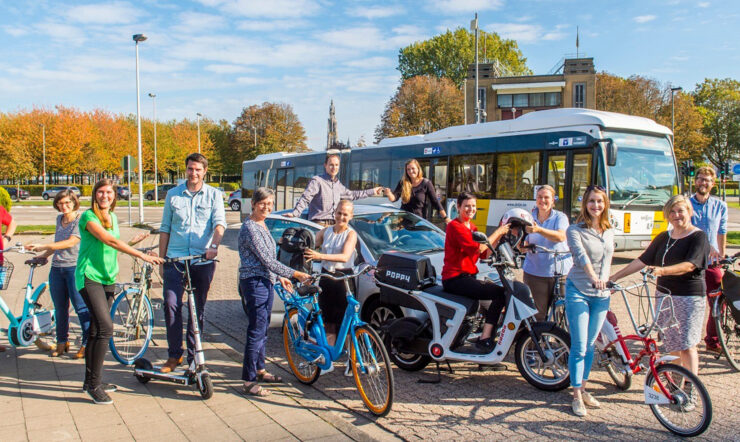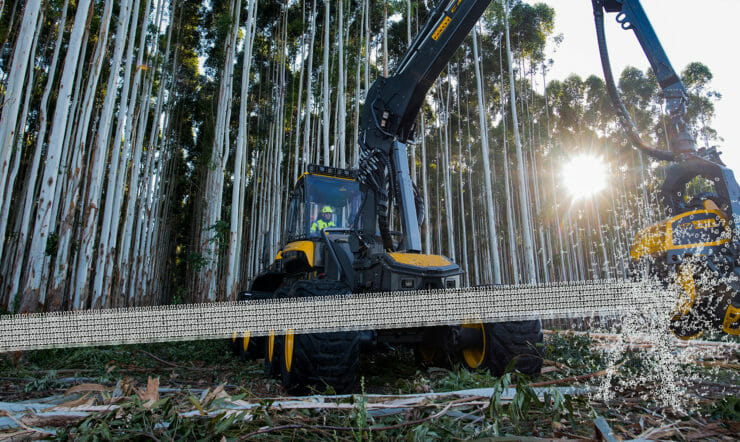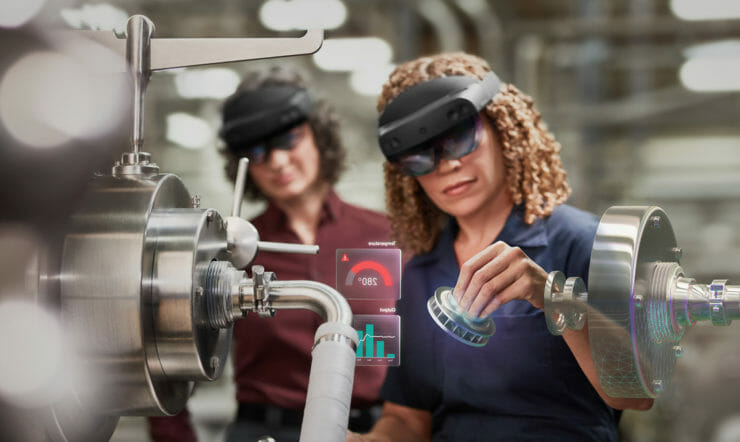Sustainability and business impact have traditionally been seen as separate forces; perceived as two distinct “pockets” rather than what they really are – two sides to the same coin. However, today, forward-thinking leaders recognize that sustainability is not just an environmental imperative; it is a critical component for business success. Embracing sustainable practices can unlock efficiencies, drive innovation and open new markets, positioning companies as leaders in the transition to a greener and competitive economy.
This is what we call ‘green value creation’ – sustainable practices that drive growth, efficiency, and resilience, critical attributes as European businesses face macroeconomic headwinds.
Digital innovations play a crucial role in green value creation. In the era of AI, there are more opportunities for organizations to leverage their ESG data as strategic asset to not only drive sustainable business transformation, but to also futureproof their business model.
Our latest whitepaper delivered by PwC Germany in collaboration with the Environmental Change Institute at the University of Oxford, supports this hypothesis. We found that data and AI can support sustainable business transformation – our research indicates technology can help global businesses save billions of dollars every year and cut global CO2 emissions by several gigatons.
Digital – and AI – transformation holds the key to developing sustainable practices that empower organizations. This starts with laying the right data foundations.
Forward-thinking leaders recognize the intrinsic power of data. What might be sustainability compliance data today becomes a platform for business transformation tomorrow. It can give organizations the analytics foundation they need to unlock new cost reductions, emissions savings and business models that weren’t possible before.
Critical to helping manage data is cloud technology. With the flexibility of cloud services, businesses can scale their operations as needed, while reducing the costs and emissions of traditional on-premises infrastructure. For instance, migrating applications, workloads and databases to Microsoft Azure can help organizations
When you factor in AI on top of cloud computing capabilities, data has the power to supercharge growth and innovation while unlocking sustainable business practices. With AI, we can measure and manage complex systems, empower the workforce and accelerate the development of sustainability solutions – faster, cheaper and more accurately than we previously thought possible.
From low-carbon materials to clean energy production and storage to climate-resilient crops, with data and AI, we can achieve more sustainable outcomes faster and with fewer resources by identifying inefficiencies and optimizing resource management and workflows.
For instance, Outokumpu, a global leader in sustainable stainless steel, has successfully reduced its energy consumption and emissions using AI. By leveraging insights derived from its operational data, the company was able to provide substantial value through predictive maintenance and prevention of equipment failure to reduce energy consumption.
Alfa Laval, Swedish leader in manufacturing, is developing AI solutions to calculate the optimal performance of heat exchangers. The resulting data analysis enables the company to eliminate the replacement of components that are still delivering optimal performance, increasing the lifetime of heat exchangers, reducing costs and emissions in the process.
AI acts as a platform for innovation and advancement, empowering researchers, scientists and business leaders to accelerate scientific discovery and driving business value through greater efficiency, product development and resiliency.
At Microsoft, we recognize the role that our technology plays in helping other organizations achieve their sustainability goals, so we are dedicated to building sustainability into all our products and operations to empower partners and customers across industries as diverse as energy, manufacturing or financial services.
It all starts with helping organizations lay the right data foundations to break down siloes to get a 360° view of their data, all one in place, in real time. Then with AI, they can discern patterns, predict outcomes, and optimize performance like never before. Business leaders can use this visibility to tell a cohesive story about their sustainability efforts and how it is helping drive business value that will chime with end customers, investors and regulators alike. A win-win-win.
So, the real bottom line? There is no “two-pocket” thinking here. Sustainability and business strategy are two sides to the same coin: digitization is the turnkey for both.
Interested in learning more? Read our full-length whitepaper and dive into real-life case studies of trailblazing businesses that are leveraging digitization as a turnkey for both sustainability and successful business transformation. You can download our whitepaper, delivered by PwC Germany in collaboration with Microsoft and the Environmental Change Institute at the University of Oxford, here.












